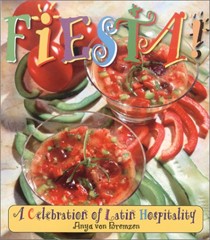


Longing is the central concept in the book. It was hilarious.ĭo you think you would have made a career out of food had you not been longing for it as a child? They thought it was normal chocolate and would be in the bathroom all day. Our fellow emigrates would get floor wax, thinking it was butter, and spread it on bread. Pop tarts – we didn’t know we had to put them in a toaster.

Velveeta, this horrible yellow processed cheese – it’s Day-Glo orange and you’re supposed to melt it. What were some of the foods you found most surprising in America? But my mum loved everything about America – she was completely euphoric and I was the sourpuss. And though we hated the experience then, we soon missed it.

I even missed the food queues – I would learn so much from just queuing up for food, it was like a community thing. There were little buildings everywhere, everyone was driving, and we didn’t have a car so we had to walk on the highway. We lived in the centre of Moscow it was very beautiful, we had a lot of friends, and then we came to suburban America. I was crushed, I really hated it at first. What was it like moving to Philadelphia from Moscow in the 1970s? So our personal lives get caught up in this huge, epic history. I remember there were all these stories when she unveiled Muslim women, and then I started reading about this movement – this massive, historical movement – and there she was in the middle of it. He knew Stalin and he knew all these generals, and he filled me with such awe and respect.Īnd my grandmother’s grandmother on the paternal side was one of the first crusaders for women’s rights in central Asia. He would talk about interrogating Hermann Goering at the Nuremberg Trial, and we were like, ‘oh granddad, shut up, stop with the stupid war shit.’ We were so un-interested, and I feel really wistful that we didn’t sit him down more. My grandfather was a Soviet hack, but we didn’t have much respect for him at the time. How did you go about researching seven decades of family history? Her memoir Mastering the Art of Soviet Cooking is a tale “of food and longing” over seven decades of the Soviet experience, taking in Lenin’s bloody grain requisitioning, Second World War starvation, Stalin’s table manners and Khrushchev’s kitchen debates. But in 1974, when she was still a little girl, her mother decided she’d had enough and packed up the family to move to America, which meant giving up their Russian citizenship for good. Anya Von Bremzen was brought up in a Moscow communal apartment where 18 families shared one kitchen.


 0 kommentar(er)
0 kommentar(er)
